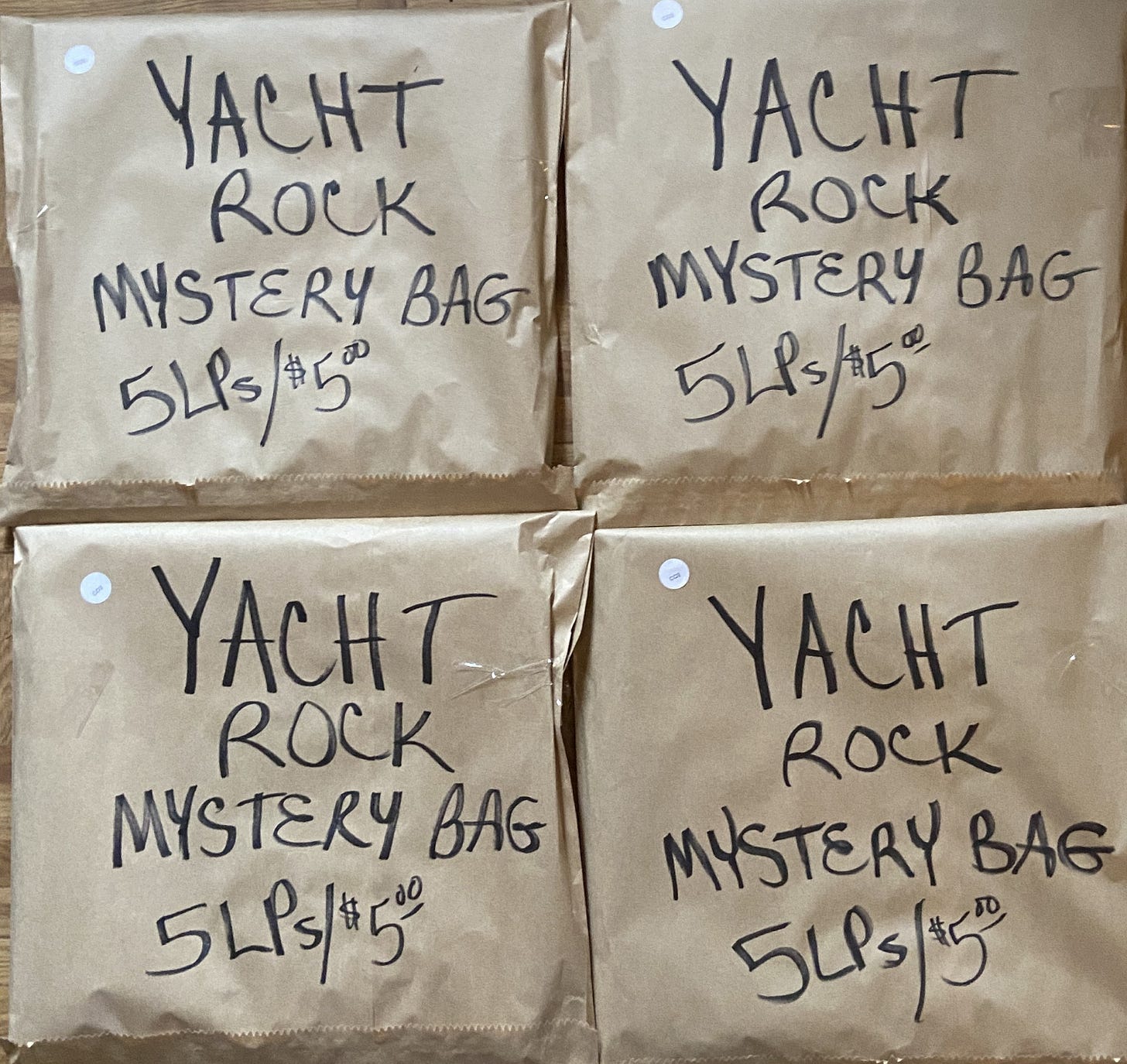Now You Know the Rest of the Story...
I share updates on recent articles
I always want to know the rest of the story. So even after I publish an article, I keep tabs on the subject.
I’m not sure this is wise. As a great poet once said, ignorance is bliss—and truer words were never spoken.
But I can’t help it. I want to know the score, no matter if I’m winning or losing.
And now you can too. That’s because today I’m sharing updates on previous stories on The Honest Broker.
Please support my work by taking out a premium subscription (just $6 per month—or less).
In followup to my recent article on yacht rock, Jim Eigo sends me further confirmation of the genre’s ascendancy—namely this photo of a popular offering at his Original Vinyl Records (in Pine Island, NY).
This might be the next best option if you can’t afford an actual yacht.
In February, I complained that “the world’s largest search engine doesn’t want you to search.”
But is that really true? Would Google really abandon its privileged role as pathway to the Internet?
The answer now is all too clear. Google has turned into a dead-end on the web. It doesn’t want you to connect—it only wants to hold you captive.
And they have succeeded in that dubious mission. Their clickthrough rate is collapsing.
According to a study by Ahrefs;
Google says AI Overviews increase clicks. Cold, hard logic disagrees, and so does our research.
We analyzed 300,000 keywords and found that the presence of an AI Overview in the search results correlated with a 34.5% lower average clickthrough rate (CTR) for the top-ranking page, compared to similar informational keywords without an AI Overview.
This is Silicon Valley madness at its most maddening.
Those Google AI summaries are embarrassingly bad. But the company is force-feeding them on to a reluctant public—while preventing users from connecting to useful data sources.
Meanwhile the hapless Google bot can’t even tell the difference between a real question and total nonsense. For example…
Can you guess what’s coming next? Yes, Google’s captive YouTube platform will do the exact same thing.
This is especially alarming because YouTube is the only part of the Google empire that really supports real flesh-and-blood creative talent. But maybe not for long.
That’s what they call a lose-lose proposition. I fully expect to report on this issue again in the future—if only to measure the damage.
NOTE: I am retracting the update below about Pitchfork. I now have evidence that the person who contacted me was a scammer, and not a journalist from the magazine.
Jeremy Larson of Pitchfork tells me: "Pitchfork has never accepted money in exchange for placement of editorial content, unless it is a sponsored article, which we clearly mark."
You can read the retraction and apology at this link.
Here’s the original article:
I’ve reported on the alarming rise of pay-for-play in creative fields. It’s happening in music. It’s happening in book reviews.
And now it happened to me.
A journalist who writes for Pitchfork approached me about featuring my music in an article. (I won’t mention her name—I really don’t want to call her out. I just want to alert you to the situation).
This was a surprise—I haven’t released a new recording in years. Most people know me as a writer, not a musician.
But she sent me this Twitter message:
I replied with a simple thank you. But she came back with more.








